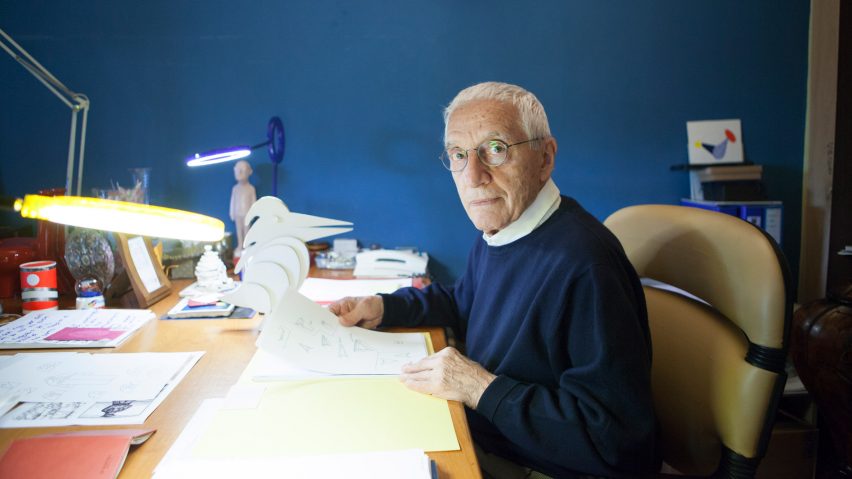Italian architect and designer Alessandro Mendini, famed for designs including the Proust armchair and the Groninger Museum, has passed away aged 87.
A key figure in the radical design movement of the 1960s, as well as the postmodern movement that followed, Mendini produced influential works of architecture, interior design, furniture and lighting through his 60-year career.
But he was also an important theorist, who served as editor of Italian design magazines Casabella, Modo and Domus.
"A figure of staggering importance"
Mendini died earlier today, 18 February. Among those who have paid tribute on Twitter is designer and postmodernism expert Adam Nathaniel Furman, who described Mendini as "a figure of staggering importance, and a beautiful mind who helped open up horizons".
"He has left a legacy for us all that on the one hand speaks for itself to those willing to listen, and on the other requires robust defence against those aesthetic fundamentalists who would dismiss it out of their tight puritan hands," he wrote in one of a series of tweets.
Italian critic Francesca Oddo described Mendini as "the protagonist of a real revolution in design".
Writing for Abitare, she said: "Brilliant, visionary, always interested in exploring different disciplines, in his 87 years of life he never stopped thinking of man, understood as 'body, psyche and spirit', as being at the centre of the project."
Proust chair is icon of the 20th century
Mendini started his career in the office of artist and designer Marcello Nizzoli, after completing his architecture degree at the Politecnico di Milano in 1959.
In 1979 he joined Studio Alchimia, an experimental collective that offered an alternative to the strict rules of modernism, instead favouring bold colours and decoration. Its work paved the way for the Memphis group, set up by fellow studio member Ettore Sottsass, and the postmodern architecture movement.
During this time he completed the Proust armchair, one of the most iconic and revolutionary chairs of the 20th century. It combined a baroque shape with a pointillist surface pattern, meaning its wooden frame and upholstery were covered in hundreds of tiny hand-painted dots.
In an interview with Dezeen in 2015, Mendini described the Proust as "an intellectual exercise".
"This chair is very expensive. It has no function. It's only for amusement," he said. "But pointillism is a real theory. Because if each point is good, the whole object is good."
Built Groninger Museum and Museo di Omegna
Mendini set up his architectural practice in 1989 with his brother Francesco, called Atelier Mendini, which he ran right up until his death.
Key projects included the Groninger Museum in the Netherlands, a building with a vibrant yellow tower; Museo di Omegna, an unashamedly postmodern building in northern Italy; and the Teatrino della Bicchieraia theatre complex in central Italy.
He also collaborated with leading industrial-design brands including Alessi, for which he designed the Anna kitchenware and a version of the Moka Espresso coffee maker.
Co-founder of Domus Academy
Mendini first moved into journalism in 1970, when radical design was at its peak. He edited Casabella magazine from 1970 to 1976, then switched over to Modo magazine in 1977.
His editorship at Domus, from 1979 to 1985, provided a critical ideology to the postmodern designs that he and his contemporaries were producing.
The architect also co-founded Domus Academy, which today is one of Italy's leading postgraduate design schools.
Many of the Mendini's former clients and associates have also taken to social media to pay tribute. The Groninger Museum said it was "deeply saddened" by the news. "He was of great importance for design and architecture worldwide," reads its tweet.
The museum had been collaborating with the architect on an exhibition called Mondo Mendini, which is due to open on 12 October.
Meanwhile Galerie Kreo, which hosted a show of Mendini's work in 2001, said it had been an honour to work with Mendini "these past 20 years".
"Your sensitivity, generosity, vitality and integrity are and will remain an example for all," it said.

